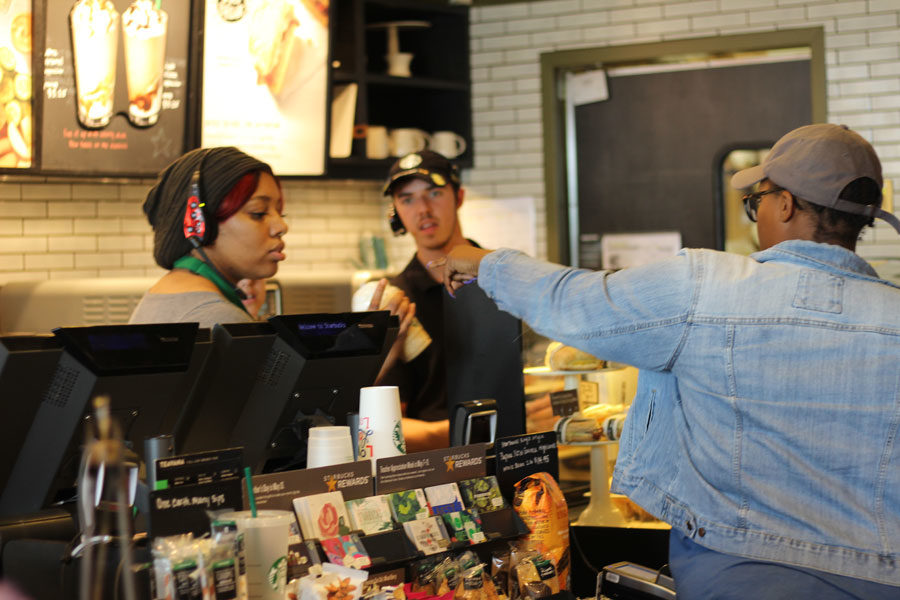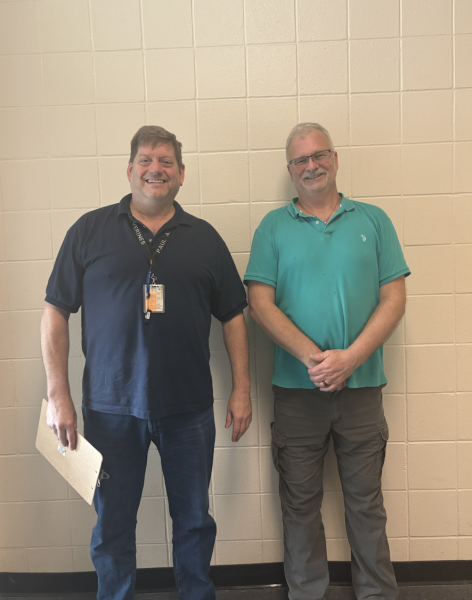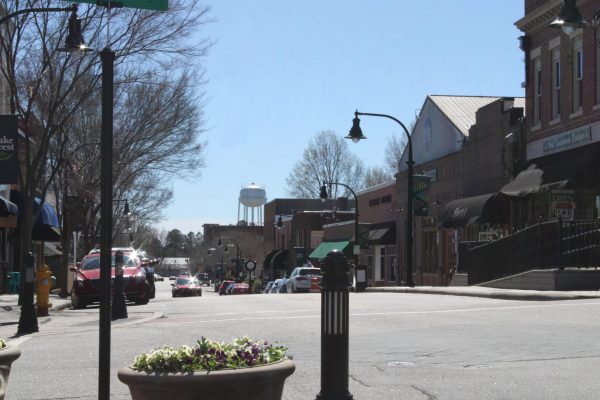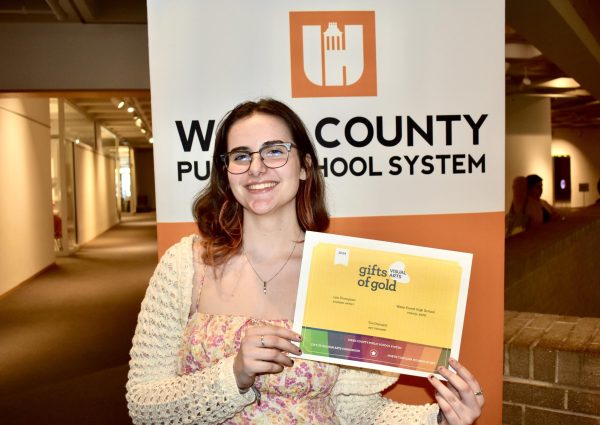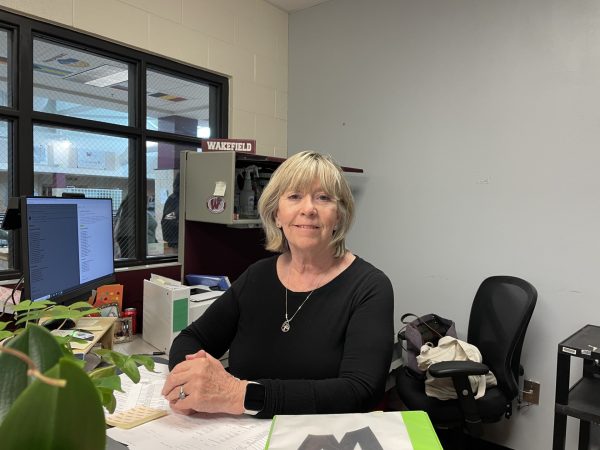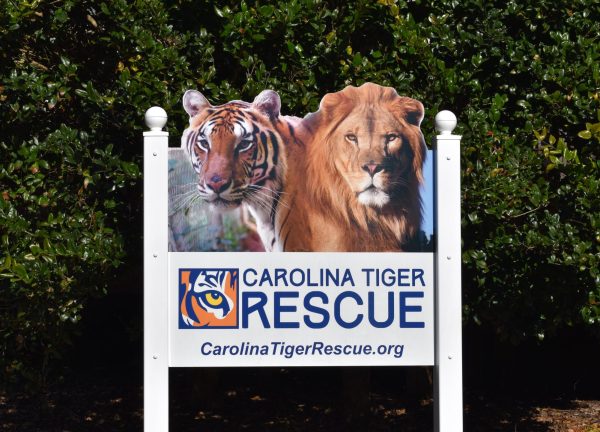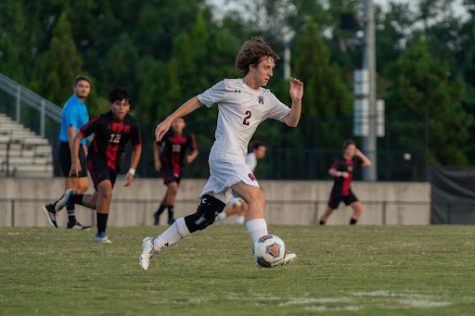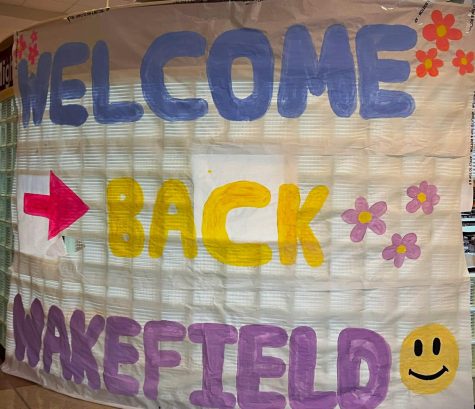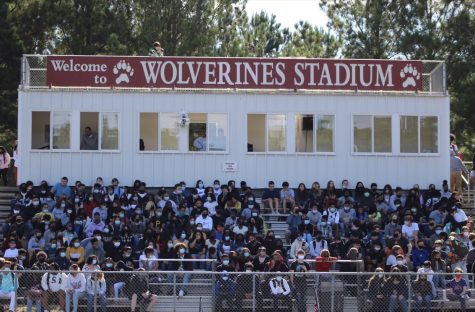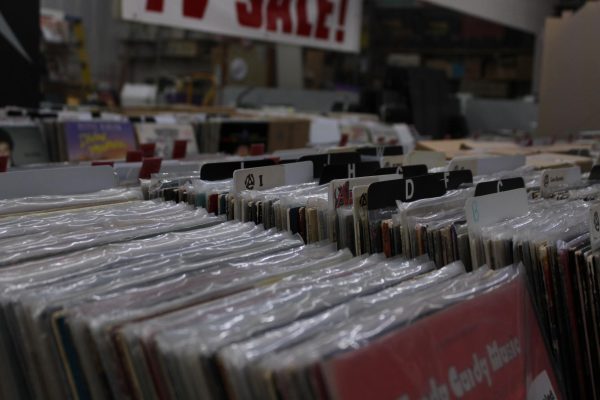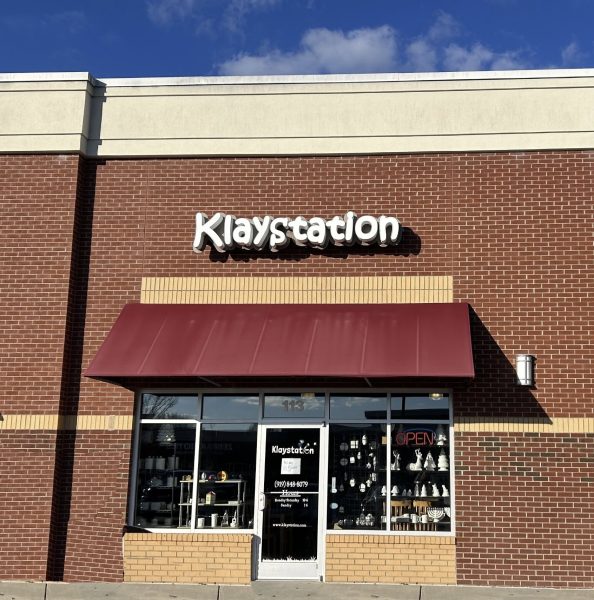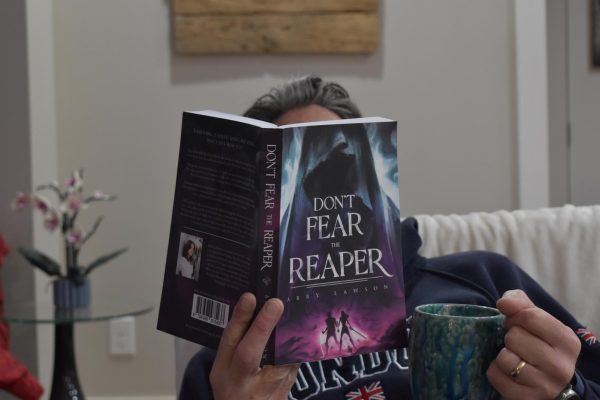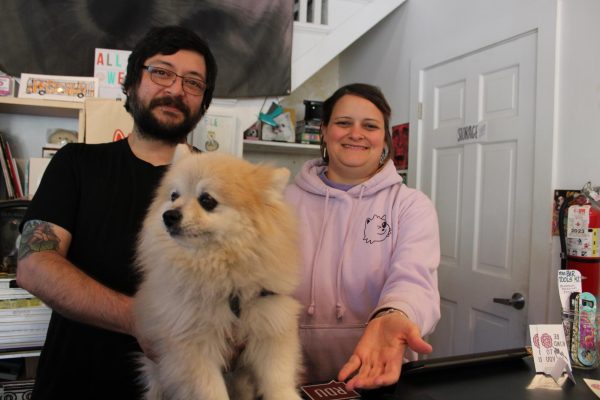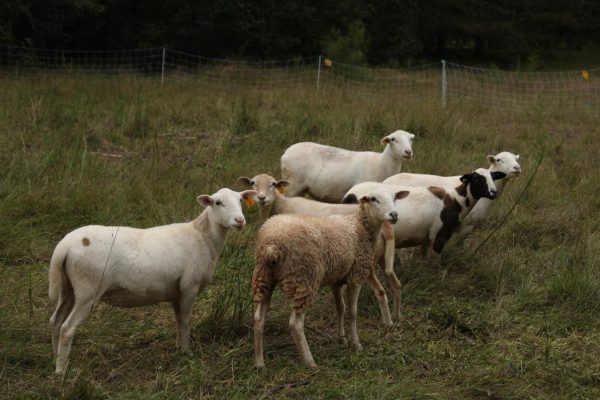Philadelphia Starbucks displays unconscious bias
On May 29th, 8,000 Starbucks will close nationwide to conduct racial-bias education in response to racial profiling at one of their own locations.
April 12. Rashon Nelson and Donte Robinson walk into their local Starbucks and take a seat, waiting for the arrival of their friend. Nelson promptly asked the store manager if he could use the restroom, but the manager refuted, clarifying that restrooms were for paying customers only. Returning to his seat, two African American men, decline to patronize the Philadelphia Starbucks and according to the HuffPost, “approximately two minutes after they had arrived, the manager called 911.” The police arrived and told both Nelson and Robinson that they had to leave, offering an unclear explanation as to why. In their interview with Good Morning America, transcribed by HuffPost, Robinson stated that “we wasn’t read any rights ― nothing,” Robinson said. “Just double-lock handcuffs behind our backs and escorted out and put into a squad car.” Customers inside the store, not only stood up for the rights of these men but recorded the entire incident, leading it to go viral on social media platforms and news outlets. Once exposed to the public eye, #BoycottStarbucks thrived amongst viewers and Starbucks CEO, Kevin Johnson, apologized for the racial bias that took place, along with establishing training for “more than 8,000 of its company-owned stores in the United States for several hours on May 29 to provide “racial bias” training for nearly 175,000 employees,” according to The Washington Post.
Americans everywhere would then confront a pivotal question: How prevalent is racial prejudice?
Wakefield faculty and students reflect on the answer to this question. Contemplating their own stance regarding this racial incident, altogether, individuals within the Wakefield community recollect on past experiences where implicit racial biases occurred in their lives — warranting uncomfortable conversation.
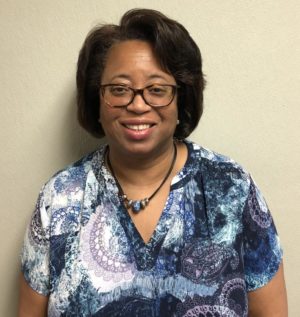
Beatrice Moore, History Teacher:
Q: Can the color of your skin really play into how you are treated in the world, in your own opinion?
A: Yes, and it is not just in the United States. It is across the globe and it’s not just people who are of black descent and African descent. There is discrimination if you are Middle Eastern. Anything that is quote, ‘different from the norm, the majority.’ Then there are rules that are either written down or unwritten that you have to justify: How [did you get] here? What are you doing here?
Q: The incident that happened at Starbucks proves that racial profiling is real and prevalent, should we be surprised by what happened? What is your opinion on the issue itself?
A: It would be nice to be surprised, but our reality of it is, it’s there. In the incidents that happened with racial profiling, it shows up more with African American males, in my opinion, than it does with females. [Black women] get racially profiled, but I think the mindset is that there is this black male and he is intimidating and there is something going to happen. He represents crime. What is perpetuated, is this person is intimidating and I have to do something about this and all I need is one incident to say, ‘okay you are here,’ ‘you are not ordering coffee,’ but you want to use the restroom, that means you are loitering.
Q: Is there any advice you would give to black youth, concerning their safety and being more aware of their surroundings in public places?
A: Unfortunately, we have to raise our children to have that 6th sense. [W. E. B.] Du Bois called it the ‘double conscious of the negro’ – where literally, you have to be aware. You are American citizens, so you need to know your rights, but by the same token, you have to do what those two men in Starbucks did – they did not raise their voices, they did not insult anyone. What I like about their demeanor, [is that] it wasn’t intimidating, it was very sedated, because they were educated black men who know the process and knew they would walk away from this. Had they reacted differently, there is a possibility that they would have been carried out in body bags, so that is the reality. Regardless of how angry you are, regardless if you know you are on the right, the main focus in those situations is that you want to live through the process.
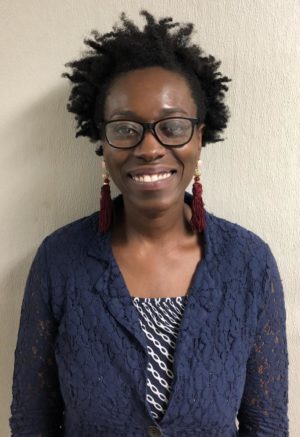
LaShonda Haddock, History Teacher:
Q: Can you define racial profiling?
A: I think racial profiling is an action that anyone, it can be someone in power or it can just be anyone on the street, who they think of stereotypical things about a group of people and they believe that that group of people, all of them do that.
Q: What is your opinion about the incident that happened at Starbucks?
A: I believe that the manager of the Starbucks handled [the incident] very poorly because when I think of Starbucks or coffee places in general, they are places where you go to do your homework, to meet people, to just sit and reflect. They claimed they were not told why they were asked to leave, they were not read their rights when they were handcuffed, and all of those things, in my opinion, violate someone’s rights. [The ‘unconscious bias’ training] that they are having to try to acclimate their staff with how they are supposed to treat everyone equal, I think that that is a great idea, but to me, it’s a systematic thing. And this might sound weird, but America has not come to terms with its past. The Germans, they apologized to the Jewish people for Auschwitz and for the Holocaust. I’m not sure that I know if America has ever apologized to African Americans for them being enslaved. I know someone might say, ‘well I didn’t do that, I didn’t do that,’ but when you hurt someone the first step in mending that relationship is an apology, and apologies go a long way.
Q: Have you ever experienced or been racially profiled before? And can you talk about an experience where you have?
A: I was [at Belk] and I was looking for makeup, I think I was at the Lancome counter, if I am not mistaken, and [the salesperson] was in the middle of helping me and then this other lady, who was not African American, came up to her while she was helping me and she asked if she could be helped and the lady just left me, in the middle of the sale. And so, I just said okay and I just wait, and they’re still talking, so I go to another counter and I ask that person if they could help me. She comes back to the Lancome counter, she’s running around getting the things that I was going to purchase, and there was a mask on the counter, and I picked the mask up to ask the lady who was helping me how it worked and if she ever used it. One of the ladies behind the Lancome counter said very loudly, ‘Why are you trying to steal that, you have to pay for it?,’ and she said it like two or three times in front of all the customers and it made me feel like less than a person. When you are profiled because you are a certain race, it makes you feel less than, it hurts, I am sitting up here right now, kind of like, tearing up.
Q: So you bring up a good point, like how we shouldn’t have to worry about this in 2018, so should we even be surprised by what happened at Starbucks?
A: No. And it goes back to me saying that this country has an open wound that it has never tried to heal and the first step in healing that open wound is apologies. I know people always say reparations, reparations. I don’t need your money. I just need for people to think that Ms. Haddock with her two degrees is just as much an American citizen as someone whose family came over here during the 1900s. My people have been here longer than yours, but to some, because of your skin color, you are more of a citizen than I am, and that just is not right.
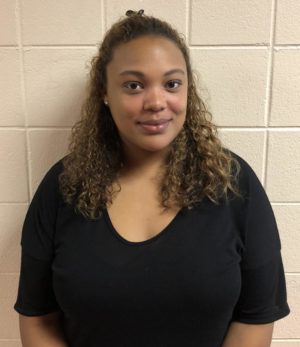
Jessica Chambliss, History Teacher:
Q: What is your opinion about the incident that happened at Starbucks recently?
A: I believe that people just automatically see a skin color and they assume that people are just doing negative things, just because of their skin color and because of what they are wearing. Because both of those men were college educated men.
Q: Have you ever experienced racial profiling in your life and can you talk about if you have?
A: Yes at Bedford [Bistro] Bar and Grille. It was when Kaepernick kept kneeling. Me and my friend were at Bedford and the National Anthem was playing. We were not saying anything, no music was playing, but Bedford had the stereo going on and a white guy came over to us and said, ‘how rude that you are playing music and you are so disrespectful.’And then we just kept looking around like, who is he talking to?, and then he realized that it was Bedford’s music and he apologized and paid for our food. But, we were racially profiled, just because we were black and he just assumed that we were protesting.
Q: How did that make you feel in that moment?
A: Angry, but I am also used to it. Even like me being light-skinned and having a mixed kind of background, I still get it to where I can’t go to certain stores, looking a certain way without getting stopped or looked at and then just me having a little brother having to tell him he can’t have his hands in his pockets when he goes into stores and things like that. It just makes me angry, but I know that it’s there.
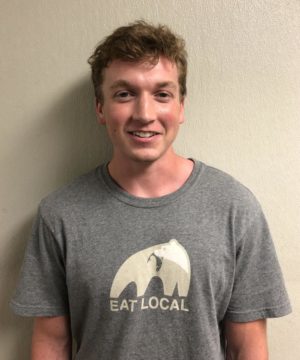
Sammy Walters, Junior:
Q: What is your opinion about the incident that happened at Starbucks recently?
A: I believe that racial profiling is not really acceptable, especially now in the 21st Century. It just doesn’t seem right and people hang out in restaurants all the time and [if] they are not buying anything, as long as they’re not causing trouble, it’s not really an issue.
Q: If you were a bystander of it, what would you do in that instance?
A: As long as the people who are being racially profiled weren’t doing anything wrong, I feel like the whole situation would not be right and it would probably be right to stand up and say something about it. If they were just minding their own business.
Q: What advice would you give youths in how to handle a situation like what happened at Starbucks?
A: Honestly, not cause a scene, stand up for yourself, but if you cause a scene, you are just going to be profiled more as like that type of person, even though that is not how it is, but that is how the media will take it.

Trystan Morgan, Sophomore:
Q: What is your opinion about the incident that happened at Starbucks recently?
A: I think that it would have been handled a lot differently if they looked different than they did. I feel like a lot of times….things like that are taking out of hand and I don’t think it should have been handled like that.
Q: Have you ever experienced racial profiling in your life, if not, do you know anybody that has?
A: I have seen people assume and heard people assume things about my family, like my sisters and mom because of the way that they look and just treat them differently than they should be treated and take their intentions differently than they are.
Q: Should we be surprised that racial profiling is real and prevalent and what is your opinion on that?
A: I think it is something that is very common in our society today, but it’s surprising that it is still common, but it doesn’t surprise me that something like that happened because we see that a lot in the news and stuff like that today. A lot of things like that are happening, but I think it is wrong and we shouldn’t expect something like that to happen.
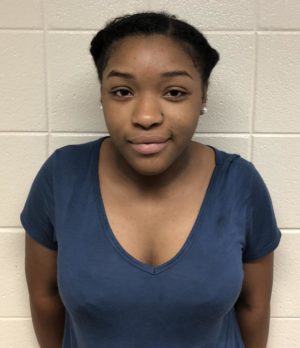
Melissa Taylor, Freshman:
Q: What is your opinion about the incident that happened at Starbucks recently?
A: [This] society nowadays curates black people as violent and I think that is what they thought when they were looking at these men like they are probably going to rob the store… or they probably went off media…and reacted to the situation.
Q: If these men were white would the outcome still be the same?
A: No because most people think that if they are white or any other race you wouldn’t be as scary or alarming to any situation.
Q: Have you ever experienced racial profiling in your life and if so, could you name some experiences and share that with us?
A: Yes. In Beaufort Middle I was talking to my friend and then I had raised my hand and answered a question [and the students] were like, ‘no that is wrong’ and when the bell had rung we were walking out of the classroom and one of the white boys came up to me and said “you know you are dumb, so why don’t you just go back to the fields and start working.” I was denied of taking honors classes and getting into an all-district band because I was black and they thought I was going to drop out because most students in Beaufort who are black drop out in high school.
Q: Do you know anybody who has been racially profiled, this can be a friend, a family member, just anything you are willing to share about your peers or family members that have been racially profiled?
A: My dad [has been racially profiled] a lot. He works with boats and back home that is what every white man does, so when he does go to work sometimes they will be like, “hurry up and do this monkey boy” or, they call him dirt, and my dad just keeps on because that is what he does for a living.
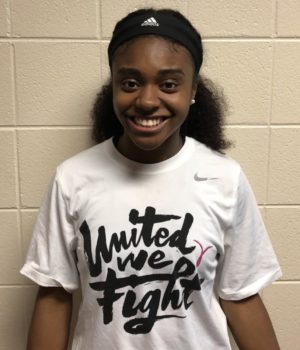
Gabby Donaldson (Junior):
Q: Can you define racial profiling and what is it in your opinion?
A: Racial profiling is an act of prejudice against someone based on the way they look, their visible race or ethnicity.
Q: What is your opinion about the incident that happened at Starbucks?
A: I think it is a prime example of how we need to tighten up our reins on prejudice and how people need to be more culturally aware and not be afraid of other people just because they look a certain way and we just have to rid our society of racism and hatred.
Q: If those men were white would the outcome still be the same?
A: I don’t think so. If they were white males who had on, I’d say like an urban demeanor, they might have drawn some attention, but I believe that because the men are African American males they were seen as a threat versus just another common human being.
Q: What advice would you give youth, especially those of color, in how to handle a situation like Starbucks?
A: I believe that you shouldn’t sink to the level of the person who is trying to diminish your importance as a human being and a man or woman of color. Don’t get angry about it, just stay informed, stay respectful, and in the end we are going to have victory over racism, so just show your maturity by not giving the person the reaction that they desire from you. Embrace one another, except people’s differences, stay culturally aware, stay woke, and keep it moving.
Q: Should we be surprised by what happened at Starbucks?
A: It is kind of shocking that someone would behave in such a manner because now it’s like people are more aware of the issues that are going on and how people think being racist like that is not normal anymore. It was normal 60 years ago. but today it’s something that is not valued it is something that is seen as just uncouth and unrefined.

Trexler Ivey, Sophomore:
Q: What is your opinion about the incident that happened at Starbucks?
A: I think it is kind of dumb how they called the cops on them and they got sent to jail just for sitting down in Starbucks minding their own business.
Q: If these men were white, would the outcome still be the same?
A: I think so, but we shouldn’t have to look at it like that. We shouldn’t have to think, ‘if this person was white this would happen,’ because that is kind of racist.
Q: Should we be surprised by what happened at Starbucks?
A: I was pretty surprised because I go in there all the time with people, with my sister, just to do homework or something and no one ever says something to me.



